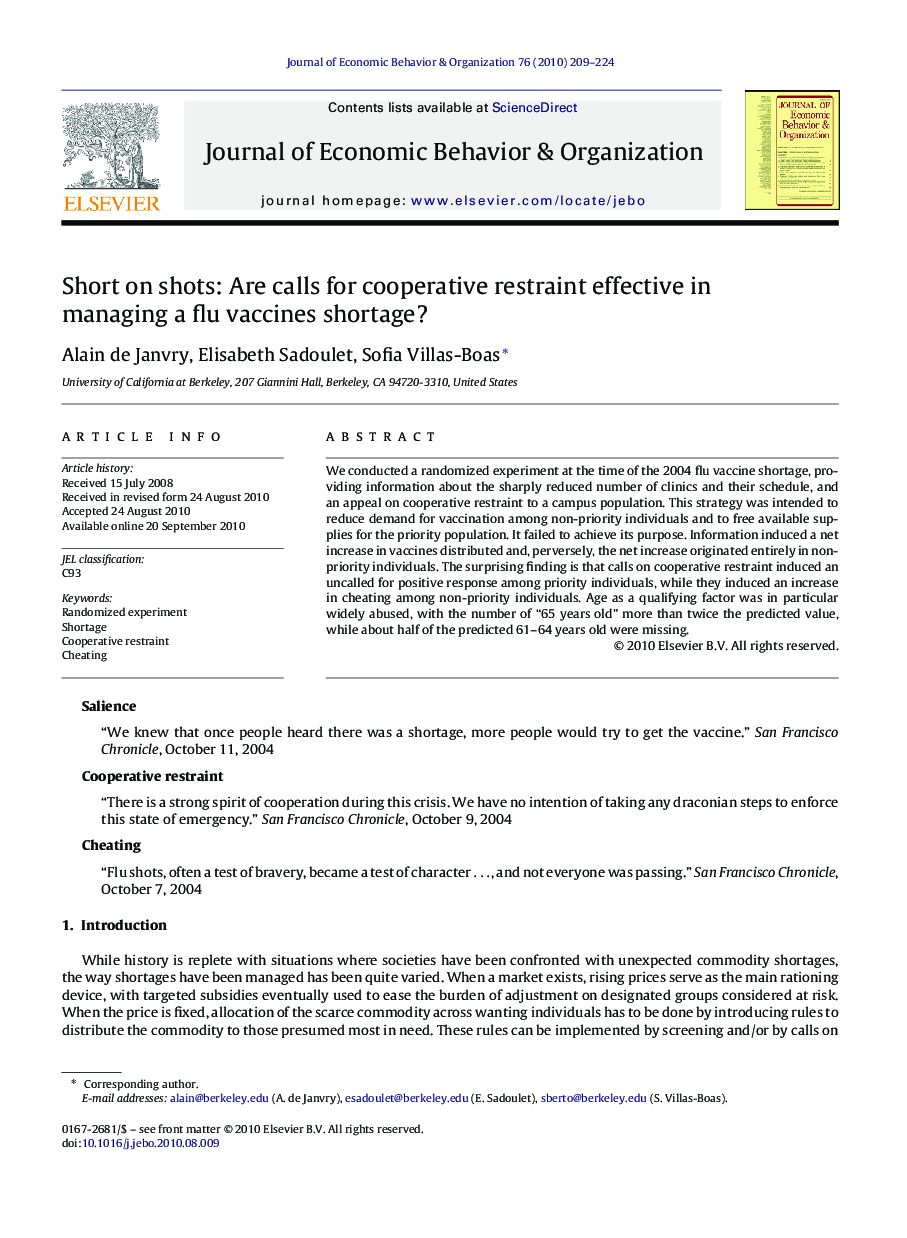| Article ID | Journal | Published Year | Pages | File Type |
|---|---|---|---|---|
| 883933 | Journal of Economic Behavior & Organization | 2010 | 16 Pages |
We conducted a randomized experiment at the time of the 2004 flu vaccine shortage, providing information about the sharply reduced number of clinics and their schedule, and an appeal on cooperative restraint to a campus population. This strategy was intended to reduce demand for vaccination among non-priority individuals and to free available supplies for the priority population. It failed to achieve its purpose. Information induced a net increase in vaccines distributed and, perversely, the net increase originated entirely in non-priority individuals. The surprising finding is that calls on cooperative restraint induced an uncalled for positive response among priority individuals, while they induced an increase in cheating among non-priority individuals. Age as a qualifying factor was in particular widely abused, with the number of “65 years old” more than twice the predicted value, while about half of the predicted 61–64 years old were missing.
